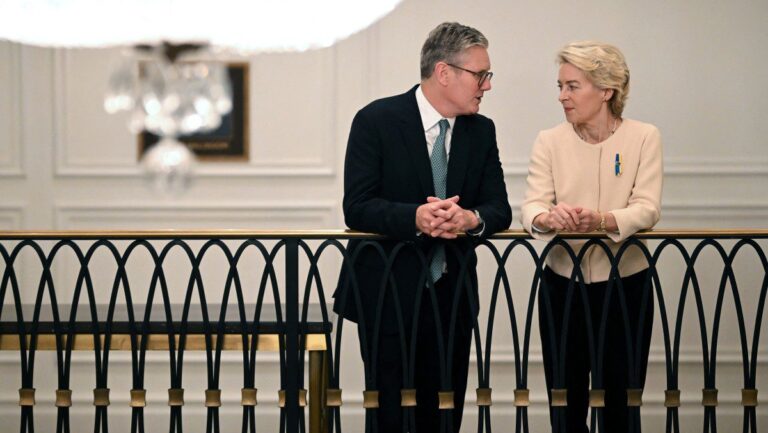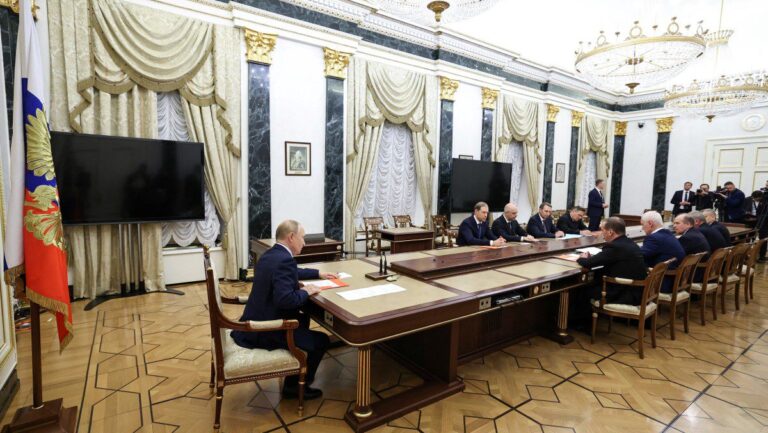Russia appears to have bypassed yet another EU sanction by using a Dubai-based shipping company to transport natural gas and oil, Politico’s Brussels Playbook reports. Brussels is looking for ways to address the issue.
Brussels is preparing its tenth sanctions package aimed at further penalizing Russia. EU ambassadors were briefed on the details of the package by EC President von der Leyen’s staff over the past few days, and the bloc is set to start discussing the final version later this week.
Some of the proposed measures are aimed at punishing financial institutions, including four new Russian banks. The package also includes a proposed ban on Russian nationals serving on the boards of critical infrastructure companies within the EU (such as electricity grids and gas providers), a new blacklisting of some 130 people and entities (including Russian military leaders, newly appointed officials, and media personalities), as well as additional trade bans on Russian rubber, asphalt, certain electronic components, and possibly even diamonds.
The European Union is also reportedly discussing ways to prevent Russia from circumventing the sanctions. One particular proposal calls for sanctioning the Dubai-based shipping company SUN Ship Management Ltd, which is strongly suspected of helping Moscow bypass oil export restrictions, according to four diplomats, who wished to remain anonymous, close to Politico.
In April 2022, in order to circumvent EU and international sanctions, the Russian state-owned shipping company Sovcomflot (SCF) is believed to have transferred its entire fleet of 92 vessels (mostly oil and gas tankers) to SUN—which is also in joint Russian-UAE ownership, according to its own website.
SUN Shipping “is basically Sovcomflot, but with a different name,” one of the diplomats said, implying that it should not be hard to impose sanctions on the Dubai company either. “Anyone arguing to keep them off the EU sanctions list is basically doing the Russian government’s bidding.”
The company, which operates “a fleet of ninety-two oil, crude oil, LNG and chemical vessels” with a capacity of more than 150 thousand tons DWT, has become one of the main maritime transporters of Russian fossil fuels since the beginning of the war—including to countries such as India and Cuba, providing a major source of revenue to Russia.
But SUN’s vessels fly neither Russian nor UAE flags; according to the sources, the tankers mainly operate under Liberian and Cypriot identification, further complicating the issue. The diplomats warned that this could cause Cyprus (possibly among other Mediterranean members) to oppose sanctions against the Russian-UAE company.
However, it is also believed that SUN has recently changed its former Cypriot flags to those of an undisclosed tax haven, which would solve at least this part of the issue. “There should no longer be any logical reason for any EU country to oppose the move against those ships,” one of the diplomats argued.
There’s no information as to which country could serve as SUN’s new tax haven so far, but it could be one of the countries added to the EU’s blacklist on Tuesday by the bloc’s finance ministers. The updated blacklist of 16 jurisdictions now includes the British Virgin Islands, Costa Rica, the Marshall Islands, and Russia itself.
The ongoing problem with the shipping companies highlights an important shortcoming in the EU’s sanctions policies: it is close to impossible for Brussels to effectively sanction all major Russian assets—by the time it manages to penalize one company, there is another one to take its place.





